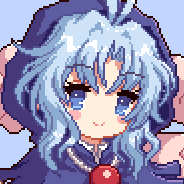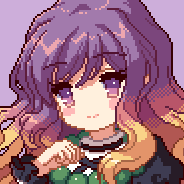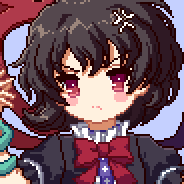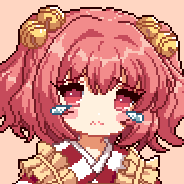【工具】switch《Custom Hiyoko NSP Creator》自制GB和GBC NSP文件工具下载,这是一个可以用来自制GB和GBC的nsp文件的工具,大家如果有需要的话,可以来试试它的内容。

Custom Hiyoko NSP Creator 自制GB和GBC NSP文件的工具
该软件包包含 .bat 脚本,用于使用泄露的 Hiyoko 模拟器创建您自己的 Gameboy/Gameboy Color .nsps。
没有提供泄露的文件。 不要问。 自己找他们。
特征:
添加自定义游戏rom。 (当然)
选择自定义图标艺术。
选择自定义游戏名称。
使用唯一的 titleid 生成每个游戏,这样您就可以安装所需的所有 GB nsps。
自己手动编辑设置或使用基本默认值的选项。
调试版本支持。
问题:
没有存档SRAM 或保存状态。
使用条件:
A Hiyoko program NCA. (I.E. 01004b90004900##_###########_Program.nca) from the leak.
A Hiyoko control NCA. (I.E. 01004b90004900##_###########_Control.nca) from the leak.
A normal keys.ini.
A dev keys.ini.
一旦你有了这些,你可以按照自述文件中的说明放置keys.ini,并创建基本程序和控制文件。
完成后,您可以简单地运行“3. Make Custom NSP.bat”并按照说明进行操作。
问题与回答
提问:"
这些Program/Control NCA's文件如何使用
回答:
下面以绿色突出显示的其中之一。 或者在需要修补的调试版本的情况下,黄色版本。
| 01004b9000490000_000017234000_Program.nca | Zelda DX (Debug) |
| 01004b9000490001_0000070ac000_Program.nca | Super Mario Land |
| 01004b9000490002_00000983c000_Program.nca | Super Mario Land (Touch Input v0) |
| 01004b9000490003_000012c30000_Program.nca | Super Mario Land (Touch Input v1) |
| 01004b9000490003_000008470000_Program.nca | Super Mario Land (Touch Input v1) |
| 01004b9000490004_00000356c000_Program.nca | Tetris |
| 01004b9000490005_000005cf0000_Program.nca | Tetris (Touch Input v0) |
| 01004b9000490005_0000322e4000_Program.nca | Zelda DX |
| 01004b9000490006_000013fec000_Program.nca | Tetris (Touch Input v1) |
| 01004b9000490006_000004930000_Program.nca | Tetris (Touch Input v1) |
| 01004b9000490011_00002fa94000_Program.nca | Super Mario Land |
| 01004b9000490011_000030e44000_Program.nca | Super Mario Land |
| 01004b9000490012_000017b10000_Program.nca | Super Mario Land (Touch Input v0) |
| 01004b9000490013_000016760000_Program.nca | Super Mario Land (Touch Input v1) |
| 01004b9000490013_000036898000_Program.nca | Super Mario Land (Touch Input v1) |
| 01004b9000490014_000037c44000_Program.nca | Super Mario Land (Touch Input v2) |
| 01004b9000490014_0000153a0000_Program.nca | Super Mario Land (Touch Input v2) |
| 01004b9000490015_000006d44000_Program.nca | Qix (Touch Input v1) (Debug) |
| 01004b9000490015_0000094b8000_Program.nca | Qix (Touch Input v1) (Debug) |
| 01004b9000490019 | Tetris (No Program.nca) |
| 01004b900049001b_00002e6e8000_Program.nca | Tetris (Touch Input v1) |
| 01004b900049001b_0000354f0000_Program.nca | Tetris (Touch Input v1) |
| 01004b900049001c_000033780000_Program.nca | Tetris (Touch Input v2) |
| 01004b900049001c_000034150000_Program.nca | Tetris (Touch Input v2) |
问:
程序的命令参数在哪里?
回答:
| –help, -h | Print usage and exit |
| –command=<file> | Use file as the contents of the command line (one arg per line). |
| –log=<file>, -l<file> | Log to file instead of stdout. Defaults to stdout. |
| –ask, -a | Ask for a rom and execute it. |
| –mute, -m | Start ROM with mute sound. |
| –debug-overlay=[0..n|none|metrics|imgui] | Specify the initial overlay type. |
| –print-trace | Print execution trace to stdout during execution. |
| Input Recording: | |
| –delete-previous-record | Delete previous input records (if it exists). |
| –record-inputs=<filename> | Start or resume the specified input capture. |
| –replay-inputs=<filename> | Replay the specified input capture and exit. |
| –input-record-checkpoint-period=<period> | Save checkpoints during input recording at the specified period, in number of guest frames. |
| –input-record-exit-frame=<frame> | Save a checkpoint during input recording at the specified guest frame and exit. |
| –input-record-cache=<directory> | Enable checkpoint cache during input recording and set its path the specified directory. |
| –input-replay-start-frame=<frame index> | Set the input frame to replay from. Defaults to 0. |
| –input-replay-screenshot-period=<period> | Take guest screenshots during input replay at the specified period, in number of guest frames. |
| –input-replay-screenshot-path=<path> | The path where replay auto-screenshots will be saved. |
| –input-replay-print-total-duration | Print the duration of the input replay. |
| –input-capture-cut-path=<directory> | Set the directory where input capture cuts will be random-inputs. |
| –extract-inputs=<filename> | Extract an input capture cut from the specified input capture and exit. |
| –extracted-inputs-filename=<filename> | Set the file path were the extracted input capture cut will be saved. |
| –extracted-inputs-start=<frame index> | Set the first input frame (included) to extract. Defaults to 0. |
| –extracted-inputs-end=<frame index> | Set the last input frame (excluded) to extract. Defaults to input capture length. |
| Saving: | |
| –delete-after-load | Delete save state after a successful load. |
| –load-state-slot=<index>, -lss<index> | Load save state by index. (takes precedence over –load-state-file) |
| –load-state-file=<filename>, -lsf<file> | Load save state by filename. |
| –save-data-backing-file=<filename>, -sdbf<filename> td> | Use the specified file for save data (SRAM or FDS writes), specifying an empty filename disable save data management. |
| –save-on-quit=<filename>, -soq<filename> | Save state to the desired location on quit event. |
| Netplay: | |
| –sync-guest-with-wall, -sgww | Synchronize emulation with wall time. |
| –sync-guest-with-host", -sgwh | Synchronize emulation with host. |
| –sync-guest-none, -sgn | Don't synchronize emulation, run as fast as possible. |
| –netplay-client[=<ip address>], -nc[<ip address> | Act as a slave for Netplay (experimentation), specify the ip of the master. |
| –netplay-server[=<ip address>], -ns[<ip address> | Act as a master for Netplay (experimentation) |
| –netplay-disable-prediction, -ndp | Disables prediction and rollback mechanisms in Netplay. |
| –netplay-max-rollback-frame-count, -nmrfc | Specify the maximum number of frames the netcode will try to rollback. |
| –netplay-input-delay-min=<N>, -nid<N> | Set minimum input delay (0..60). |
| –netplay-input-delay-max=<N>, -nidm<N> | Set maximum input delay (0..60). |
| –netplay-input-delay-up=<N>, -nidu<N> | Count of frames needed for the input delay to be increased by one (accepted values [1..255]). |
| –netplay-input-delay-down=<N>, -nidd<N> | Count of frames needed for the input delay to be decreased by one (accepted values [1..255]) |
| –netplay-dynamic-input-delay=<N>, -ndid<N> | Set dynamic input delay extra frames. |
| –netplay-dynamic-input-delay-aggressiveness=<N>, -ndida<N> | Set a the dynamic input delay mechanism aggressiveness from 0(conservative) to 100(relies a lot on rollbacks), default is 50. |
| –netplay-aggressiveness-begin=<N>, -nab<N> | Set a the dynamic input delay limit when to use aggressiveness (default: 0). |
| –netplay-delay-uses-standard-deviation, -ndusd | Use standard deviation in dynamic input delay estimation. |
| –netplay-allow-delayed-connection, -nadc | Start ROM without waiting for clients. |
| –netplay-restore-delayed-connection, -nrdc | Server will not pause on client disconnection (implies -nadc). |
| –netplay-both-player-one, -nbp1 | Both players control player one. |
| –netplay-asymmetric, -nasym | Enable Netplay asymmetric feature. |
| –netplay-asymmetric-hard, -nasymh | Enable Netplay asymmetric feature with hard transitions. |
| –netplay-asymmetric-rate <N>, -nasymrate<N> | Enable Netplay asymmetric soft transition change rate (final value: rate / 1000, default: 10) |
| –netplay-asymmetric-period, -nasymperiod | Enable Netplay asymmetric update period (default: 20) |
| –netplay-record-log=<path>, -nrec | Record Netplay session. |
| –netplay-replay-log=<path>, -nrep | Replay Netplay session. |
| Misc: | |
| –dim-screen-after=<s> | Dim screen after <s> seconds of inactivity. |
| –volume=<0..100> | Set sound volume (default: 100). |
| –dump-guest-samples=<filename> | Save guest audio samples in WAV format. |
| –dump-host-samples=<filename> (-dhs?) | Save host audio samples in WAV format. |
| –screenshot-write-queue-capacity=<1..n> | Change the capacity of the screenshot queue (default: thread-count * 2 + 1). |
| –screenshot-write-queue-thread-count=<count> | Change the number of threads allocated to the screenshot write queue, 0 to disable (default: 1). |
| –screenshot-output-format=[png|ppm] | Change the format of the screenshots when using the generic screenshot capture code (default: png). |
| –save-screenshot-on-quit=<filename>, ssoq<filename> | Save screenshot to the desired location on quit event. |
| –random-inputs | Use random inputs instead of values from physical controllers. |
| –random-inputs-seed=<0..n> | Change the random inputs seed value (default: 0). |
| –random-inputs-period=<0..n> | Change the random inputs period in number of frames (default: 10) |
| –machine-type, -mt<dmg|mgb|sgb|cgb|agb|ags> | Emulate the specified hardware. |
| –execute-boot-rom | Execute the machine boot ROM before cartridge rom. |
| –display-x3-rgb | |
| –display-x3-bgr | |
| –palette-filename | Use the given file as the monochrome palette. Palette file should contain four 32bit host-endian integers in RGBA byte order. |
| –enable-dual-vm, -edv | Execute two virtual machines at a time, simulating cable link between them. |
| –enable-dual-vm-display, -edvd | Enable the other virtual machine display in dual virtual machine mode. |
| –exit-address=<address> | Exit application when reaching specified guest address (0=disabled). |
| –reset-sram-file | Reset SRAM after loading it instead of re-using its contents. |
| –enable-remanence | Enable Remanence Filter. |
| –enable-colorspace | Enable hardware accurate colorspace. |
| –enable-dot-matrix | Enable dot matrix grid display (requires scale >= 5 for DMG or >= 8 for MGB, and –enable-colorspace). |
| –dot-matrix-alpha | Change dot matrix grid alpha (default 127). |
| –color-temperature=<value> | Adjusts the color vibrance of the monochrome display. (i.e. 3000). |
| –tactile-inputs=<layout index> | Enable tactile inputs (layouts: 0, 1). |
下载地址(由网友樱桦总大酱发布):
如何免费下载《【工具】switch《Custom Hiyoko NSP Creator》自制GB和GBC NSP文件工具下载》
扫扫微信小程序,搜索暗号lad156553免费可下当前资源!


 首页
首页





















